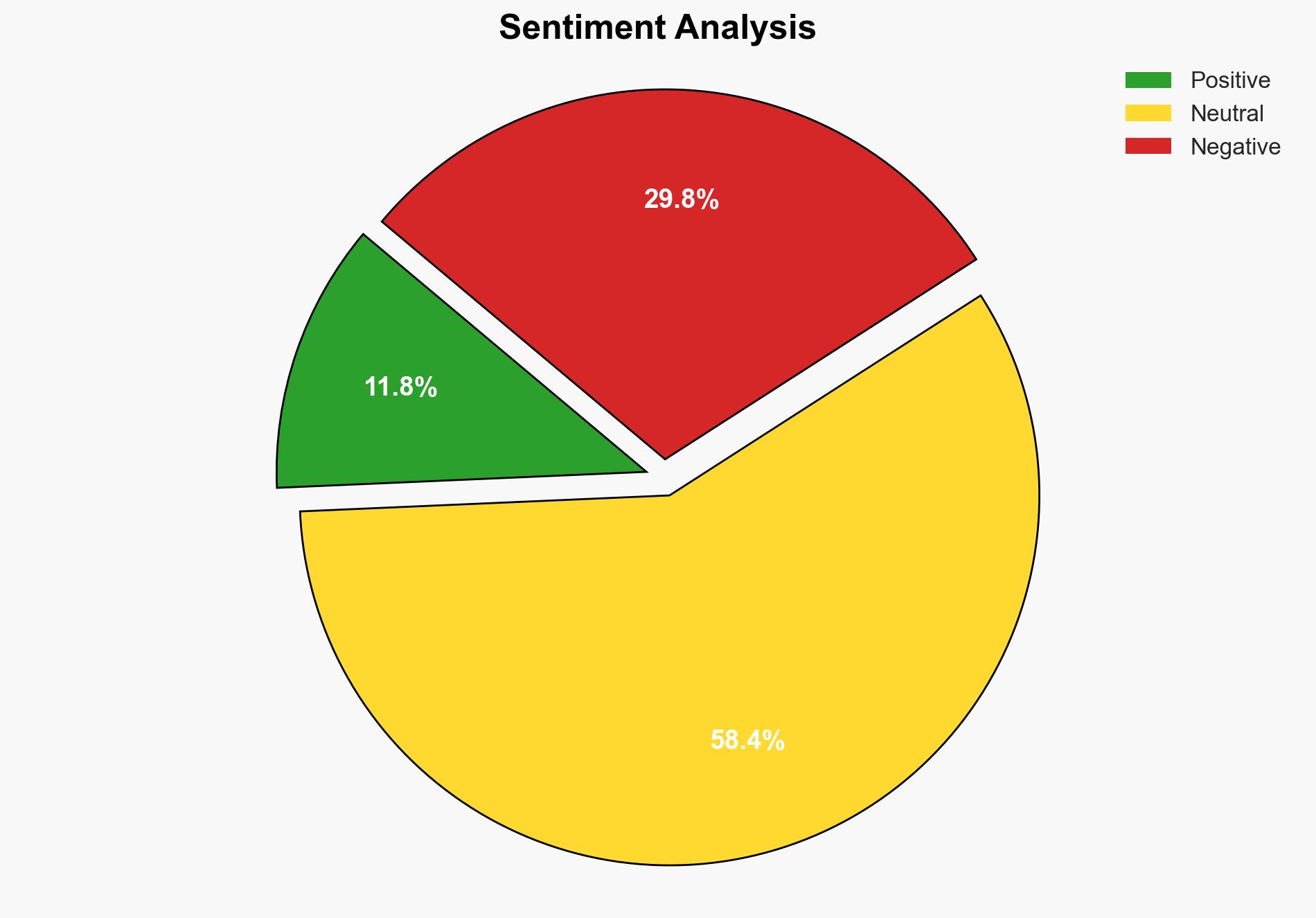Israel carries out airstrikes in Gaza Lebanon and Syria killing at least 10 people – New York Post
Published on: 2025-03-18
Intelligence Report: Israel carries out airstrikes in Gaza, Lebanon, and Syria killing at least 10 people – New York Post
1. BLUF (Bottom Line Up Front)
Israel has resumed airstrikes in Gaza, Lebanon, and Syria following the collapse of a ceasefire agreement with Hamas. The strikes have resulted in at least 10 fatalities. The escalation is attributed to Hamas’s refusal to release hostages, including an American citizen. The situation poses significant risks to regional stability and international relations.
2. Detailed Analysis
The following structured analytic techniques have been applied for this analysis:
General Analysis
Israel’s airstrikes are a direct response to Hamas’s refusal to release hostages, which has been a critical sticking point in negotiations. The Israeli government, led by Benjamin Netanyahu, has vowed strong actions against Hamas, citing increased military preparations by the group. The strikes have targeted multiple locations within Gaza, resulting in civilian casualties, including women and children. The international community, including the United Nations, has expressed concern over the humanitarian impact and called for a resumption of peace talks.
3. Implications and Strategic Risks
The renewed hostilities pose several strategic risks:
- Increased regional instability, potentially drawing in neighboring countries and escalating into a broader conflict.
- Heightened tensions between Israel and international actors, particularly if civilian casualties continue to rise.
- Potential disruption of economic activities in the region, affecting trade and investment.
- Humanitarian crises due to displacement and destruction in affected areas.
4. Recommendations and Outlook
Recommendations:
- Engage in diplomatic efforts to mediate between Israel and Hamas, focusing on humanitarian concerns and hostages’ release.
- Enhance intelligence-sharing among regional allies to monitor and mitigate further escalation risks.
- Consider sanctions or incentives to encourage compliance with international humanitarian laws.
Outlook:
Best-case scenario: A renewed ceasefire agreement is reached, leading to the release of hostages and a reduction in hostilities.
Worst-case scenario: The conflict escalates, involving additional regional actors and resulting in significant civilian casualties and infrastructure damage.
Most likely outcome: Continued intermittent hostilities with periodic international interventions aimed at de-escalation.
5. Key Individuals and Entities
The report mentions significant individuals and organizations:
- Benjamin Netanyahu
- Edan Alexander
- Steve Witkoff
- Taher Nunu
- Antonio Guterres
- Muhannad Hadi




